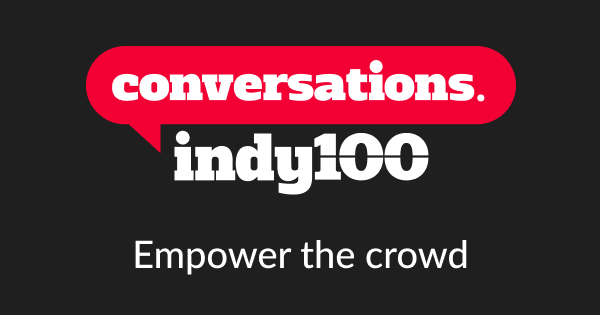Conversations from indy100 Community Guidelines
Conversations from indy100
Be part of the conversation.
What are the Conversations from indy100?
Conversations is a new social journalism platform that empowers the crowd.
Why should a small group of columnists, politicians and "thought leaders" get to dominate the debate? Why do so many comment articles have to take a side, and take shots at
others? Why does so much of social media have to be about such short, aggressive exchanges? Why can't we all discuss the subject we want to talk about properly?
Now you can, with your post appearing on indy100.com and reaching millions of readers.
We want our conversations to reflect a broad spectrum of viewpoints. But just like in real life, we don't expect you to agree with every opinion you read or hear. You can curate your own experience on the platform, by muting the conversations which you don't want to be a part of.
But we want to make sure that you will never miss the big conversations of the moment. Popular conversations will be promoted to the top of the site so you can read, and contribute to them, easily.
Why be a part of this?
If you want your voice to be heard on a global, progressive platform, Conversations from indy100 is for you.
Your voice is not alone; it will be supported by Conversation's editorial team. Posts which are receiving positive interaction from our community are identified by our editors, and are promoted to the top of the homepage so your work gets the credit it deserves.
We also want you to get the most out of being part of these conversations. The top and most frequent contributors have the chance to be promoted on The Independent and you may be invited to write separately for The Independent, one of the world's biggest quality news brands.
Keeping you safe
We are a platform which promotes diversity and the freedom to express a broad range of views. However, we want to keep our community safe from harm. Moderation using our community guidelines helps us to achieve that (see What we expect from you, below).
We rely on automatic moderation via a spam filter in the first instance. These pending contributors are then checked by our editorial team before being released or blocked.
If our team identifies that your contribution falls below that standards we would expect, we have the right to remove your article from the site, and in certain cases, remove you from the conversation completely.
What we expect from you.
We want all conversations to be thoughtful and reflect a broad spectrum of viewpoints. But just like in real life, no one wants a conversation to turn into an argument. In real life, you can walk away, but when you're online it's not so easy. That's why anyone joining Conversations from indy100 is expected to comply with our guidelines to ensure a safe and fair environment so that a wide range of people can engage in meaningful discussion.
We will remove any content which falls below the standards we would expect of our contributors. It's only fair that those who follow our guidelines get the privilege of remaining in the conversation; anyone who consistently ignores our rules will be removed.
The legal stuff
You are responsible for your posts and we will not accept any liability for their content or accuracy. By contributing to the conversation, you are agreeing that your comments are not defamatory, obscene or in breach of anyone else's rights. If they are, your post will be deleted.
We also do not accept the following behaviour from members of Conversations from indy100:
(i) Personal attacks
We make a distinction between lively criticism of an argument, belief or style of writing and attacks on individuals. Comments that are abusive to other commenters or our journalists will not be tolerated.
(ii) Hate-speech and inciting violence
We will not tolerate sexist, racist, homophobic, and other discriminatory language or views. Nor comments which are defamatory, malicious, threatening, false, misleading, offensive or abusive. Comments which incite violence or appear threatening or harassing will also be deleted - and those users banned.
(iii) Bad language or indecency
Comments which include swear words will automatically be referred for moderation and usually deleted. Any swearing directed at another user will automatically be deleted.
Please also refrain from posting any content which could be seen to be indecent, obscene or of a sexual nature.
(iv) Privacy & impersonation
Respect the privacy of other commenters and don't include personal addresses, email addresses, phone numbers or full names in your post. Do not impersonate another user in your post.
(v) Off-topic spats
In any conversation, it's usual for regular commenters to get to know each other and each others' views. However please refrain from breaking off from the topic under discussion to engage in personal chats or spats.
(vi) Spam
Conversations from indy100 are intended as a platform for the exchange of views and ideas. Comments intended to sell a product or promote commercial interests will be deleted, as will multiple posts.
